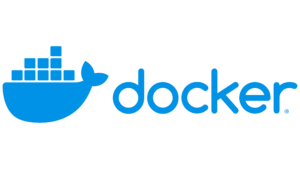mintCast 148: Base The Data
Listen: mintcast148.mp3 or mintcast148.ogg
News:
- [13:45] The Linux Foundation Secure Boot System released. (phoronix.com)
- [16:40] Linux developers working on uniting Windows 8 Secure Boot fixes. (zdnet.com)
- [22:37] Steam Can Now Be Repackaged In Linux Distributions. (phoronix.com)
- [25:00] Microsoft Bringing Office to Linux? (omgubuntu.co.uk)
The Main Topic: Open Source Databases
- [30:50] LibreOffice Base. (libreoffice.org) — Tutorial (gofree.com)
- [41:50] SQL — A special-purpose programming language designed for managing data in relational database management systems (RDBMS). SQL was initially developed at IBM by Donald D. Chamberlin and Raymond F. Boyce in the early 1970s. (wikipedia.org)
- [47:20] MySQL (mysql.com)
- [50:00] MariaDB (mariadb.org) (montyprogram.com) (askmonty.org) (wikipedia.org)
- Fedora News (fedoraproject.org) (phoronix.com) (securitronlinux.com)
- openSUSE News (muktware.com) (michal.hrusecky.net)
- [53:30] PostgreSQL (postgresql.org) — License (opensource.org)
- [55:33] SQLite (sqlite.org)
- Compare MySQL to PostgreSQL and SQLite. (wikivs.com) (linuxjournal.com) (databasejournal.com)
- [1:01:20] NoSQL Databases (wikipedia.org)
- [1:04:26] CouchDB (couchdb.apache.org) (wikipedia.org)
Featured Website:
- [1:17:00] Linux Journal’s Events Directory. (linuxjournal.com)
More Information:
Live Stream (Mondays at 8:00 p.m. Eastern): mintcast.org
Contact Us:Forum: forums.linuxmint.com
Email: [email protected]
Twitter: @mintCast @Linux_Mint @3dbeef @jamescoyner @txhawkins
IRC: irc.spotchat.org – #mintcast
Google+: mintCast
YouTube: mintCast Productions
More Linux Mint info: website, blog, forums, community
Credits: Podcast Entry and exit music provided by Mark Blasco (podcastthemes.com). The podcast’s bumpers were provided by Oscar.
Podcast: Play in new window | Download
Subscribe: RSS
9 Replies to “mintCast 148: Base The Data”
Comments are closed.




Same problem ad last week episode not available in any of the feeds
Sorry, that was my foolishness this time. I somehow deleted the feed information from the post when I put it up. Files are there and should load from feed now. Thanks for letting us know!
No Problem
This is just more proof that you people are masters at tech, you were able to understand and teach about databases in one week! Sadly this was the episode I had to turn off, perhaps I will keep to put me peacefully to sleep in 80 years….
On Data-Bases;
Halfway through, there was guy in the chat said, “snore” and signed off. Fine, that’s his opinion. To most people, a Data Base is invisible, separate, located somewhere over… um, you know, over there. And we need them because… ah, the guy with the beard says we need it, and the other guy who’s designing our website is going to charge us an extra 70% if he has to do it himself.
Last week, I got an e-mail from Amazon. A new program is going on where they’re looking at what audio CD’s I’d bought over the years, and adding the MP3’s to their MP3 Cloud player. Do you really think something like that could managed on Excel?
Sorry, guys, it’s obvious to you (and me, and the SysAdmin, and Bill-MI) why databases are important. For the rest of the world, they have no idea they exist. So, here’s me real-world example.
I’m going into work at Office Depot. When I get there, I encounter a LOL (Little Old Lady) who needs ink for her printer. I don’t know if you’ve looked for ink lately, but every business quarter, the printer companies come out with new lines of machines. They NEVER take the same ink cartridges as were used last quarter. If I’m lucky, she’s written down the model of the printer (although she insists it’s her computer that needs ink), and maybe the manufacturer. As I am bear of very little brain, I pull out my Android phone. It has the Office Depot app on it already, so I tap the “ink” tab, and select Hewlett Packard, the select the model. A second later, I get a list of cartridges, with price and an estimate for how many pages can be printed [with 5% coverage, with skinny Helvetica or Arial font, not that fancy bold Impact or German]. The LOL walks away happy she can print her greeting-cards out, or whatever she’s doing.
The pertinent information what’s contained on my phone, nor in the Office Depot app. It’s on a database. My phone and the app just placed a request that linked to a database… somewhere. Maybe at http://www.officedepot.com (really doubtful), maybe to HP, or Epson, Brother, Samsung. It’s possible with all the Oracle and IBM integration that our company has, that my query could have hit server in California while the requesting server sits in Boca Raton, Florida, and gets relayed to me in Fort Worth, Texas.
But without that repository of information, everything stops.
This is why we were freaked out over the Y2K bug. It wasn’t about our clocks being screwed-up, it was about what happens when these nodes of information can’t communicate.
So, yeah, the tip of the iceberg is always boring >snore<. But you don’t define an iceberg by what you see.
#Very well done, guys! If there's not enough fedback here, please take a look at what's said on G+
I am sorry for being rude, I was implying that it was boring, not unimportant.
Free penguin! Free penguin, everybody! Hey, everybody, free penguin!
http://www.teamfortress.com/linux/
http://store.steampowered.com/sale/linux_release
Long time listener and first time commenter!
To the user in chat who asked if phpMyAdmin works with MariaDB, I wanted to let them know that it does!
I set up a nginx/php/mariadb set a while back for some testing, so I fired it up to take this screenshot of how mariadb shows up:
http://imgur.com/TgOD9AH
I hope this helps!
Keep up the great work guys!
I enjoyed the podcast. The topic of databases is a hard one to cover in a short format program, but you guys did an admirable job.
One aspect of SQL that probably should have been included in the discussion, SQL for a database system like MySQL is divided into three components. These components provide everything needed to create, maintain, and provide security for a relational database:
DDL (Data Definition Language) to create and maintain the database structure (schema)
DML (Data Manipulation Language) to maintain and query the data in the database
DCL (Data Control Language) to maintain security access to the database
Also wanted to mention the open source application “Dia”, it is a diagram editor which can be used to create a database model. And then a utility program named “tedia2sql” can be used to generate the SQL needed to create a database from the diagram. Both Dia and tedia2sql are available in the Ubuntu repositories. Creating a visual model before making a database of any complexity will allow you to generate a more robust and normalized database.